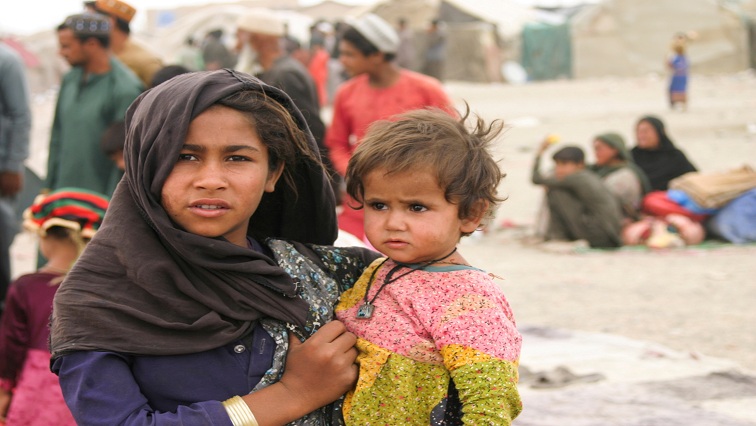Almost six months after the takeover by the Taliban, Afghanistan is hanging by a thread.
That was the stark message of the United Nations Secretary-General Antonio Guterres during an open briefing in the Security Council where a bleak human rights and humanitarian picture has emerged as Afghans find their plight exacerbated by what the UN describes as a brutal winter of blistering wind, cold and snow.
The UN Chief warned that the country’s economy was on the brink of complete collapse as he highlighted the humanitarian appeal launched two weeks ago of 4.4 billion dollars, the largest in the UN’s history for a single country.
The SG’s report to the Council presented a picture of absolute despair in Afghanistan as he described families huddled in makeshift tents under plastic sheets, evening burning their possessions to stay warm.
“When it comes to complex humanitarian emergencies, Afghanistan is as bad as it gets.”
Guterres pointed to overcrowded clinics which are under-resourced while hospital power generators run dry due to skyrocketing fuel prices
A population stalked not just by COVID-19 but by measles, diarrhea and even polio.
Over half of all Afghans face extreme levels of hunger with reports that some families are selling their babies or marrying off girls to purchase food. While more than 80% of the population relies on contaminated drinking water.
“At this moment, we need the global community – and this Council – to put their hands on the wheel of progress, provide resources, and prevent Afghanistan from spiraling any further. First and most urgently, we need to scale up our humanitarian operations to save lives. This goes far beyond our humanitarian appeal itself. We need to suspend the rules and conditions that constrict not only Afghanistan’s economy but our lifesaving operations. At this moment of maximum need, these rules must be seriously reviewed. International funding must be allowed to pay the salaries of public-sector workers,” Guterres reiterated.
The Council unanimously passed a resolution in December that facilitates humanitarian aid to the country while keeping funds out of Taliban hands due to sanctions; as the international community struggles to avert a humanitarian catastrophe after billions in assets belonging to the Afghan Central Bank remain frozen.
“We need to jump-start Afghanistan’s economy through increased liquidity,” adds the UN Chief.
“We must pull the economy back from the brink. This means finding ways to free-up frozen currency reserves and re-engage Afghanistan’s Central Bank. And it means exploring other ways to rapidly inject liquidity into the economy. The World Bank’s reconstruction trust fund for Afghanistan transferred $280 million to UNICEF and the World Food Programme last month. We need the remaining $1.2 billion to be freed up urgently, to help Afghanistan’s people survive the winter. Time is of the essence. Without action, lives will be lost, and despair and extremism will grow.”
He said the window for trust-building was now open but that trust from the international community needed to be earned, particularly in the area of human rights.
“A stable, prosperous and peaceful Afghanistan is an inclusive Afghanistan – one in which all people can contribute to its future. This must include the rights of women and girls, who are once again being denied their rights to education, employment and equal justice. This is a tragedy for those women and girls who grew up believing that any dream was within reach, and now helplessly watching those dreams slip away. ”
There are some promising reports from the region – the Secretary General’s Special Representative Deborah Lyons explaining that the de facto authorities have taken some steps to function more effectively as a government with some signs of wider consultation with political and civil society actors.
But this has been coupled with an emerging environment of intimidation and a deterioration in respect for human rights particularly for women and girls – a complex set of factors further complicating an international response seeking to find just the right balance.


